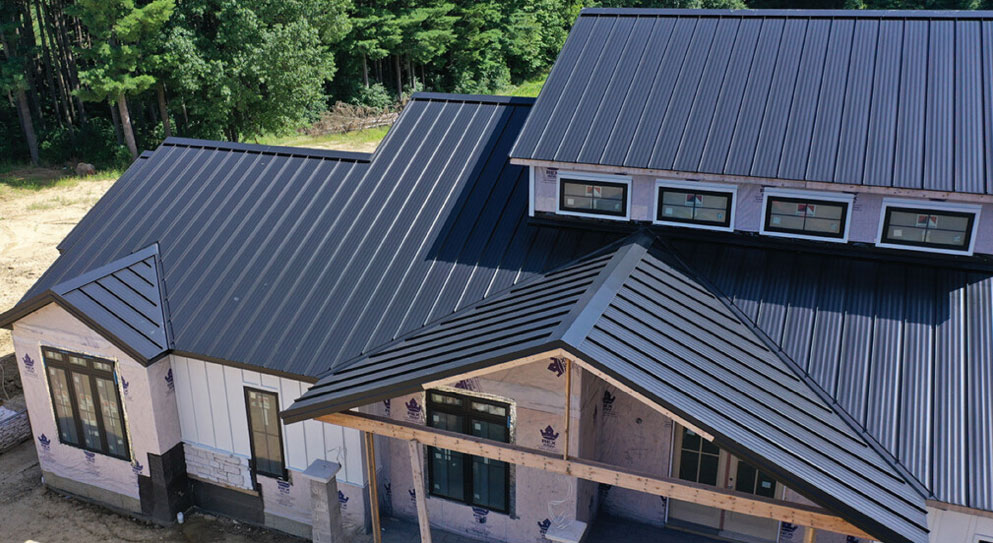Does a black metal roof absorb heat, pros & cons

https://youtu.be/kWOxHraCpO8 Metal roofs have become a popular choice amongst home and business owners and they offer many advantages. A metal roof provides great performance and has a lifespan of around 40 years. They consist of interlocking panels that are durable and resistant to harsh whether conditions and also fire. A black metal roof adds a […]

